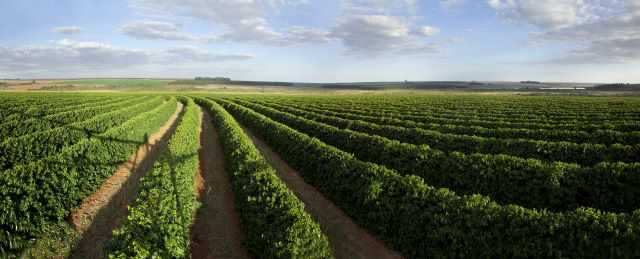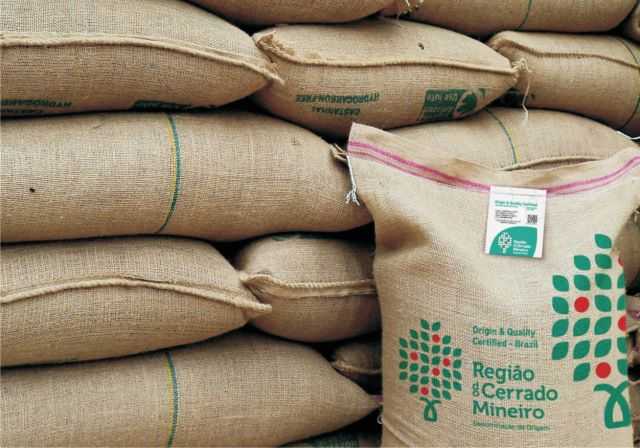MILAN – Expocacer – cooperative of the Cerrado Mineiro that provides direct support to the farmers, and helps them with the storage, marketing, and exportation of their coffee while also guiding them through sustainability and certification processes – speaks through the words of Gláucio de Castro, president of the Federation of Coffee Growers of the Cerrado.
A man who has this role in his DNA, as his own father was part of the creation of the cooperative from its early years and now he supports the same project that has grown over time.
But first, an important premise to clarify the relationship between Expocacer and the Federation of Coffee Growers of the Cerrado: The Federation is responsible for issuing the Denomination of Origin (DO) certification for Cerrado Mineiro coffee, which was established in 2013. The Federation focuses on ensuring the quality, authenticity, and traceability of the coffee, aligning the region’s product with international quality standards.
Expocacer works directly with farmers, providing logistical support, facilitating certifications like sustainability and regenerative practices, and connecting the coffee to the market. It handles the operational side, helping farmers meet the criteria required for certifications while also exporting their coffee globally.
These two entities collaborate closely, but their functions are distinct: the Federation sets the standards and protects the DO, while Expocacer supports the practical implementation of those standards, particularly through sustainability initiatives.
Expocacer: from 1993 to today, how has the Cerrado Mineiro coffee market changed?
“We started our work in 1993, 31 years ago, as an Association. Now we have 6 cooperatives and 6 associations under us. Only later did we become a cooperative: the Association represents the producers from a political point of view, to meet environmental and labour needs; with the cooperatives in addition, we can also have warehouses in which to store our farmers’ coffee, which they can then sell through us.

In 1993 we made the choice to valorise our coffee – the first contest was in 1991 with illycaffè – which we know is of high quality: in the various competitions our raw material, Cerrado Mineiro, has distinguished itself several times.
So we set ourselves the goal of making this our identity: in 2005 we obtained the first proof that could attest to the diversity of our product, which is unique in quality and flavours. We wanted to give it a denomination of origin, in 2013, out of a desire to show it as a brand in the packaging we sell around the world.
In 2022, we counted 1 million bags of this coffee and we export to more than 30 countries.”
Which are the main ones and where would you like to strengthen?
“The most important country for us in terms of exports is Europe, Italy and Germany being the most significant, but then we also sell to Japan and the United States: the latter is the market we would like to penetrate more strongly. We are trying to improve and expand business opportunities towards this country.”
How long ago and why did you create a unit dedicated to specialty coffees and how much does it represent in terms of volume compared to the total coffee you handle?
“We started the first competition in Cerrado Mineiro in 2012: the first time we decided to raise the quality of the raw material among the producers, who found a way to do their best, and as proof of this change of pace, this year we counted 5147 farmers who proposed themselves for the competitions.
The look towards the specialty is due to our interest in the continuous search for an ever higher quality coffee: competing with these coffees gives a lot of good visibility to Cerrado Mineiro.
“Talking about numbers: we have an average of 6 million bags per year, an export percentage of 70% and an average of 40-60% of coffees score 80 and above for all the green produced – exported and sold internally -.
15% of the coffee scored above 80 is micro and nanolots highly graded”.
You distinguish between classic coffee, industrial coffee and specialty coffee: can you explain the difference between these categories?

“Almost all Cerrado Mineiro coffee falls in the range between 80 and 84 points: we are certainly talking about a coffee that is already very good and is what we can define as classic. The specialty naturally exceeds this threshold and must go beyond 86 to be considered as such. Industrial coffee, on the other hand, is the one that has many defects in it and is usually destined for domestic consumption.”
What certifications does Expocacer issue, and how do they represent a solution for both farmers and importers?
“Today there are so many certifications and it is a problem for producers because they are tied to the decision of someone coming from outside to their plantations to control every aspect of production and the process: it is not easy for a farmer to deal with this. With Expocacer we have created a Federation that works together to create knowledge around the Cerrado Mineiro.
We are trying to formulate a single protocol that can encompass the different certifications, which can make things easier for producers: however, it is not a method that is immediately understandable by importers. We started pushing in communication this year and maybe in 2025 we will have the first results.
Expocacer guarantees the main certifications, but we are putting them all – except for the Organic – under a single protocol that we have studied and approved.”
How many members does your cooperative have, and of these, how many large and how many small farmers?
“There are currently 7000 families in our cooperatives. 20% of these are large – in the order of 5000 hectares cultivated with coffee – and 50% are small – roughly 15 hectares and up -. We deal more with smaller farmers and this gives us a lot more work, because it is easier to manage large volumes.”
What is the added value of being part of Expocacer for the farmer?
“Having access to the market: cooperatives are in charge of finding the right outlets for a high quality product. Being a member of Expocacer also gives you the opportunity to improve your raw material or to recognise that you already grow speciality coffee and thus be more competitive on the market.”
How does one become a member of Expocacer?
“It is necessary to be a producer in Cerrado Mineiro of Arabica, respecting the working conditions of social and environmental sustainability that we have established and that we want to be guaranteed through continuous controls. Then you can get in touch with the offices of the cooperatives that are dedicated to new entries: to them you can hand in your application to become a new member and thus start the procedure to see if you meet our standards.
Membership of Expocacer is totally free of charge.”
EUDR: Expocacer is ahead on this issue. Tell us about the strategies already in place and those you will develop to meet this challenge?
“In Brazil, we do not have any particular problems with coffee with respect to the regulation: we already grow and are structured to export coffee that does not deforest, which therefore allows us to be prepared for this challenge”.
What other goals are on the table for Expocacer in the coming years?
“We should continue to collaborate with each other and with companies, just as we have done so far with illycaffè.
We would like to create new hubs in London, Korea, the US and further increase the quality of our coffee to reach all markets with this strong identity. With regard to the threat of climate change – which then puts Arabica at greater risk than Robusta – we are working hard on new irrigation systems, the cultivation of seeds that can lower the temperature and thus improve soil conditions, which will be richer in water.
In the Cerrado Mineiro we are also trying to proceed with regenerative agriculture: the first farm of this type is in our region.”
About the latest CM’s accomplishments: In 2024, the Cerrado Mineiro region saw a remarkable 160% increase in its coffee origin certification, reaching a total of 300,500 certified bags, compared to 2023. This significant growth is the result of strategic measures implemented to improve origin control, traceability, and certification processes, while also enhancing the region’s coffee profile in the global market.
These advancements include the certification of “bica corrida” coffee immediately after harvest, streamlining the certification process. Additionally, only coffees scoring above 80 points are now certified, ensuring that only the highest-quality coffees meet the region’s rigorous standards. The traceability process has been expanded beyond the demarcated area, allowing coffee to be tracked even when stored outside the region. Finally, the automatic delivery of certificates and quality reports to buyers has been implemented, enhancing transparency, building trust in the product, and meeting the requirements of international markets.


















